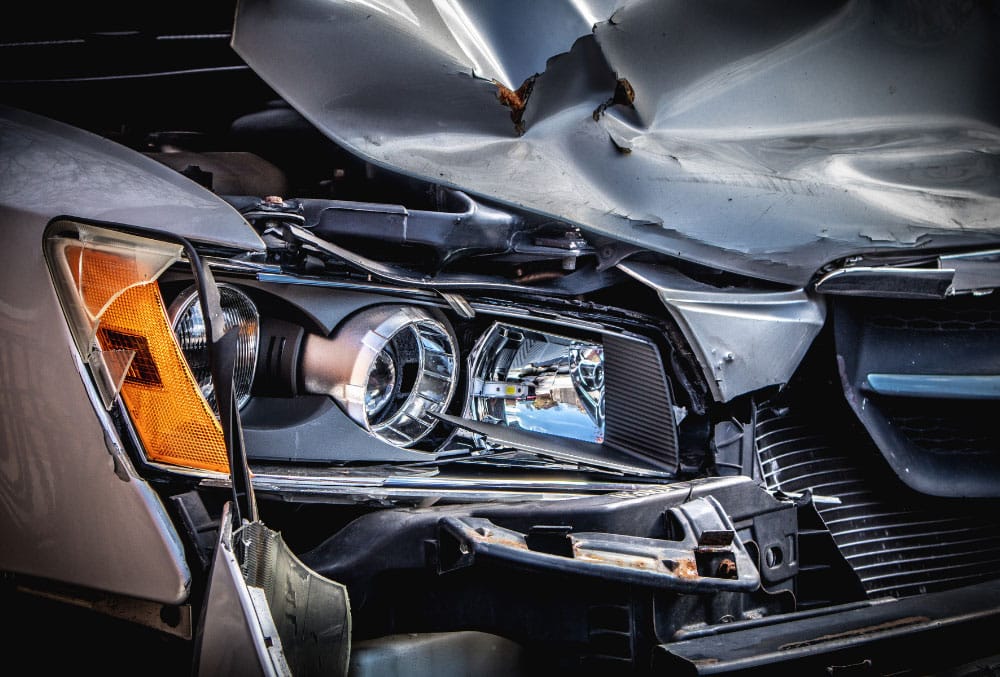The Pros and Cons of Removing Collision Coverage on Ontario Auto Insurance
March, 07 2022
Getting into a car accident in Canada can frighten and frustrate the calmest of drivers. Nonetheless, Ontario auto insurance gives you peace of mind in knowing you have coverage for any liability concerns. If you have collision coverage, you will also have help in getting your car fixed.
Ontario auto insurance is mandatory, yet collision coverage and a few other types of coverages are optional. Overall, every driver should have a good understanding of their auto insurance coverages and make adjustments to their policies as needed.
It is not always easy to know when it is the best time to remove collision from your policy, so we are here to provide some insight to help you make the right decision.
Mandatory Coverages vs. Optional Coverages on Your Ontario Auto Insurance Policy
Drivers have many choices to make when deciding the best Ontario auto insurance coverages for their situation. Choices are nice to have when you understand how each element of your auto insurance policy protects you and other people out on the road.
Here is a quick snapshot of the coverages you must legally have versus the coverages you can choose to have:
Mandatory Coverages
- Third-party liability
- Statutory accident benefits coverage
- Uninsured automobile coverage
- Direct compensation property damage (DC-PD)
Optional Coverages
- Collision
- Comprehensive
- Additional third-party liability
- Additional statutory accident benefits
- Additional property damage insurance
- Medical rehabilitation and attendant care benefits
- Caregiver benefits
- Housekeeping and home maintenance expenses
- Death and funeral benefits
- Dependent care benefits
- Indexation for inflation
The more coverages you add, the higher your premium will be. Drivers who have a tight budget for their Ontario auto insurance will need to choose their coverages wisely.
Some people value their cars highly and work hard to keep them in tip-top shape. Others view them merely as a way to get around. Either way, collision coverage is an important way to protect the investment you make in your car.
What Are the Pros and Cons of Keeping Collision Coverage on Your Car?
Should you keep collision coverage on your car or not? There is not always a clear answer to that question. We will attempt to answer it by outlining the pros and cons of having a collision on your auto insurance policy, regardless of your car’s age or condition.
Pros
- Covers accidents where you are deemed at fault
- Covers a rollover accident
- Covers hitting a stationary object
- Saves money out of your pocket if you are at fault
- Allows you to repair or replace your car if it gets damaged
- Helps new cars stay looking new
- Your lender may require you to have it
Cons
- Does not cover non-collision damages such as hail, glass, fire, etc.
- Does not cover medical expenses
- Increases your premium
Lenders always require you to have car insurance in the GTA because they have ownership of it until you pay it off, and they are interested in protecting their investment.
You can have collision insurance without adding comprehensive coverage if you choose. However, the premium difference may be very little either way.
What Are the Implications of Removing Collision Coverage from My Ontario Auto Insurance Policy?
Collision coverage only comes into play if you are deemed to be at fault in an accident. If the insurance companies determine a different driver to be at fault, that driver’s insurance company will pay for your car if they have insurance.
What happens if they do not have insurance? You can file a lawsuit against them and try to win on damages. If the other driver lacks adequate financial means, it can be difficult to collect, even if you win.
If you opt to forgo collision coverage or remove it from your policy, you will have to pay for any repairs to your car if you are at fault in an accident. This could be a very big expense if you have to replace your car entirely.
Another consideration is how much you owe on your car versus your car’s value. If you owe more on your car than it is worth, you could end up with no car and still have to make car payments. This is called being “upside-down” on your loan.
If you have a loan on your car and you remove the collision coverage on your car, your lender could force-place insurance on your car, and the premium would likely be higher than if you kept collision coverage on your car.
What happens if the fault of an accident is not clear? You can always file a claim with your Ontario auto insurance provider until a decision has been made. If the other driver is deemed to be at fault, their insurance company will reimburse your company for damages to your car.
Overall, depending on your circumstances, it may not be worthwhile to remove collision coverage from your car insurance policy in Niagara.
When to Consider Dropping Collision Coverage on My Ontario Auto Insurance Policy
Now, we will get down to the nuts and bolts of when you should consider dropping the collision coverage on your auto insurance policy. This is by no means a comprehensive list, but it will give you some basic ideas about when to drop collision coverage:
- You do not have the finances to repair or replace your car if it gets damaged or is beyond repair.
- The value of your car is over the cost of your deductible.
- You have a history of getting into accidents.
- Your car is newer, and you do not want to lose the value you invested in it.
- You drive your car frequently, and it has excessive miles on it for its age.
- You do not have a loan on your car.
- You cannot afford the premium for collision (and you do not have a loan on it).
A rule of thumb for car insurance (and for all other types of insurance) is to select coverage levels you can afford while ensuring you have enough coverage to alleviate a financial hardship if your car gets damaged.
Your Ontario car insurance deductible is the amount you must satisfy before your car insurance provider will pay their portion.
Your Ontario car insurance broker will be happy to help you understand your coverages and make recommendations for you based on your circumstances and personal preferences.
Final Thoughts
While collision and comprehensive coverages are not required, they can provide additional financial protection for you. If you lease or finance your car, you will not have an option. Even if you do not finance your car, it may be in your best interest to pay a bit more on your premiums to have collision coverage.
Hopefully, you will not get into a car accident; but if you do, the peace of mind in having collision coverage can be priceless. At Duliban Insurance Brokers, our expert agents are happy to help you understand how collision coverage works and how it can best serve your needs. Contact Duliban for a no-obligation quote on your Ontario car insurance today.
External Links











